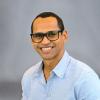Quantum Century
Over the past hundred years, physics has undergone a major revolution with the development of quantum mechanics. Unlike the theory of relativity, this development relied on the international collective effort of many researchers and quickly spread worldwide, inspiring significant further contributions in different countries and cultures. While the theory contained many puzzling features and generated considerable discontent and philosophical debate, quantum concepts penetrated many fields of scientific research, both in and beyond physics, irrevocably transforming the foundations of many disciplines and the scientific worldview writ large. New technologies and devices built on quantum principles and effects have fundamentally transformed human societies and some of the most essential aspects of daily life.
The Quantum Century Working Group aims to explore these historical changes – intellectual, technological, philosophical, cultural, and social – brought about by the development of quantum physics and complex interactions between theory, experiment, and various applications. One hundred years after it was constructed, quantum mechanics remains one of the central pillars of modern science and the source of life-changing innovations. It continues to answer previously unresolved problems and generate new puzzles promoting research further into unexplored territories. We invite papers representing the variety of scientific and technological experiences associated with the quantum worldview and its development over the last century, reflecting the practices of science in wider social and intellectual contexts in different disciplines, geographies, and cultures.
Please set your timezone at https://www.chstm.org/user
Respectful Behavior Policy
Participants at Consortium activities will treat each other with respect and consideration to create a collegial, inclusive, and professional environment that is free from any form of discrimination, harassment, or retaliation.
Participants will avoid any inappropriate actions or statements based on individual characteristics such as age, race, religion, ethnicity, sexual orientation, gender identity, gender expression, marital status, nationality, political affiliation, ability status, educational background, or any other characteristic protected by law. Disruptive or harassing behavior of any kind will not be tolerated. Harassment includes but is not limited to inappropriate or intimidating behavior and language, unwelcome jokes or comments, unwanted touching or attention, offensive images, photography without permission, and stalking.
Participants may send reports or concerns about violations of this policy to conduct@chstm.org.
Upcoming Meetings
-
Tuesday, January 28, 2025 10:00 am to 11:30 am EST
Alex Blum and Martin Jähnert - "Quantum mechanics, radiation, and the equivalence proof."
-
Tuesday, February 25, 2025 10:00 am to 11:30 am EST
Johannes Hagmann - A Quantum Insight: Deutsches Museum exhibition
-
Tuesday, March 25, 2025 10:00 am to 11:30 am EDT
Alexei Kojevnikov - Quantum physics in the Soviet Union
-
Tuesday, April 22, 2025 10:00 am to 11:30 am EDT
Women in the History of Quantum Physics: Beyond Knabenphysik
Editors:Patrick Charbonneau, Michelle Frank, Margriet van der Heijden, and Daniela Monaldi
-
Tuesday, May 27, 2025 10:00 am to 11:30 am EDT
Elena Schaa - "Heisenberg's Experience of the Matrix Mechanics on Helgoland."
Past Meetings
-
November 26, 2024
Wright, Aaron Sidney. “Nascent Pairs and Virtual Possibilities.” In More than Nothing: A History of the Vacuum in Theoretical Physics, 1925-1980. New York: Oxford University Press, 2024. https://doi.org/10.1093/oso/9780190062804.003.0003.
Aaron Sidney Wright is Associate Professor at the Department of History of Dalhousie University and the History of Science and Technology Program of the University of King’s College.
More than Nothing is available in Oxford Academic (online) and Chapter 1 (the Introduction) is available free at this link.
-
October 22, 2024
Alexander Blum - Sharing Plans and Ideas for the 2025 Quantum Centenary
Group Conveners
-

Alexander Blum
Alexander Blum is Research Group Leader at the Max Planck Institute for the History of Science in Berlin. His research group (2018-2025) investigates the search for a final theory of physics in the twentieth century. He received his master’s and PhD degrees in theoretical physics from Michigan State University and the University of Heidelberg, respectively. He has worked extensively on the history of quantum field theory, general relativity and their proposed unification in a quantum theory of gravity, and has published, e.g., a monograph on Werner Heisenberg’s failed attempt at a theory of everything and a commented sourcebook on quantum gravity in the first half of the twentieth century. He is currently completing a book on the historical debate concerning the mathematical and logical consistency of quantum field theory.
-

Jinyan Liu
Jinyan Liu is an Associate Professor of the history of modern physics at the Institute for the History of Natural Sciences, Chinese Academy of Sciences. She got her master’s and PhD degrees in theoretical physics, respectively at Liaoning Normal University (2010) and the Institute of Theoretical Physics, Chinese Academy of Sciences (2013). Her research field currently is the history of particle physics, especially for the high-energy physics development in China. She has published a monograph (in Chinese) on the history of Chinese physicists’ construction of the Straton model in 1965-1966, in addition to papers on China and the Soviet Union’s physics collaboration in the 1950s and 1960s, as well as distinguished Chinese-American physicists’ contribution to China’ S&T exchange with the world since the 1970s.
-

Climério Paulo da Silva Neto
Climerio Paulo da Silva Neto is an Associate Professor of physics and history of science at the Federal University of Bahia and the author of the book Materializing the Foundations of Quantum Mechanics. His research deals with the history of physics in the 20th century from the perspective of the circulation of materials, knowledge, and ideologies, through real and imaginary boundaries such as nation states, racial, gender, and political affiliations. He is currently investigating the Socialist approach to scientific internationalism and science diplomacy during the Cold War based on case studies from Soviet physics. He holds a master's and a PhD in History and Philosophy of Science and Science Teaching from the Federal University of Bahia. He has been a professor of History of Science at the Federal University of Western Bahia (2015-2020), Brazil, and a visiting scholar at the History Department of Drexel University (2023-2024).